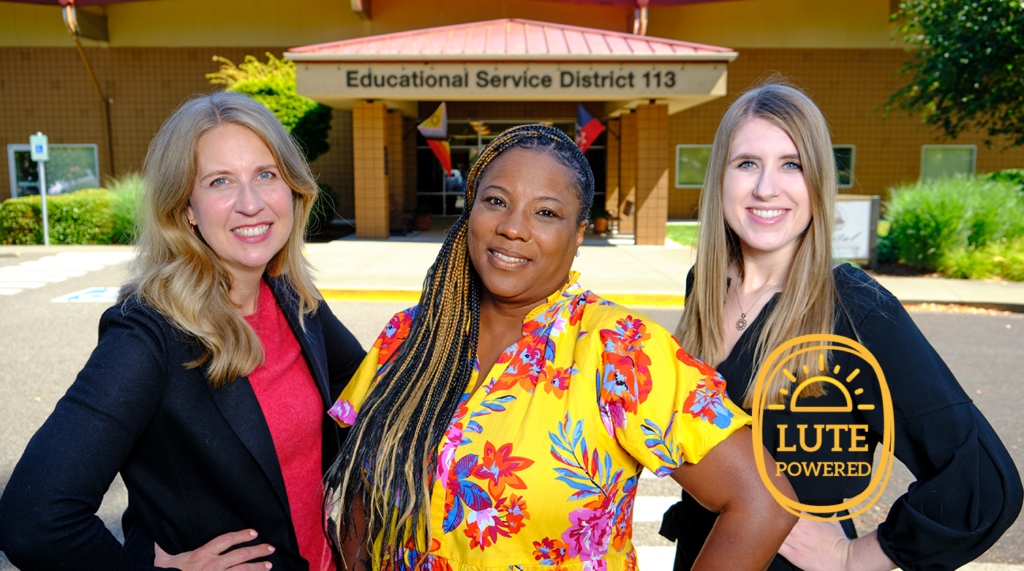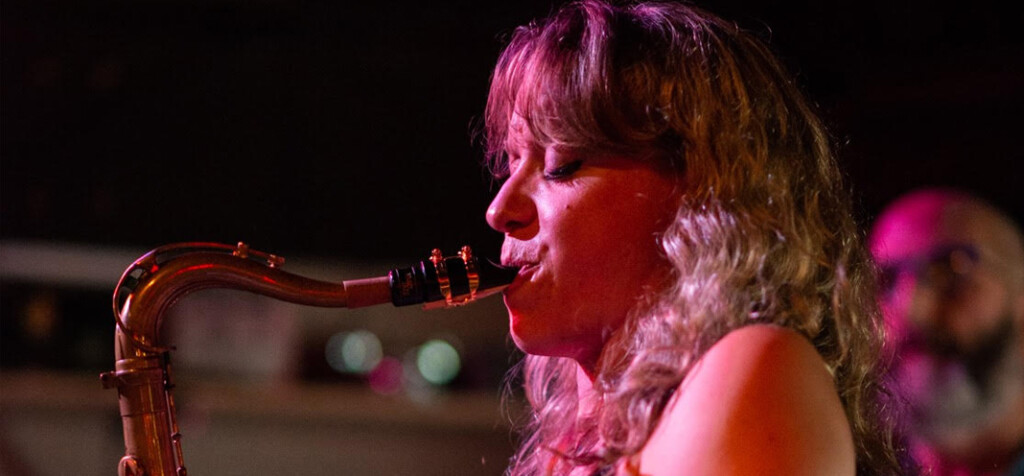Page 4 • (408 results in 0.02 seconds)
-

Pacific Lutheran University’s Reserve Officers’ Training Corp has been named one of the best in the country. PLU is one of eight colleges to be recognized by the United States Army Cadet Command and the Gen. Douglas MacArthur Foundation with a MacArthur Award for the…
PLU ROTC recognized with MacArthur Award for 2019-20 excellence Posted by: Thomas Kyle-Milward / January 17, 2020 Image: Pacific Lutheran University ROTC has been recognized for its excellence in the 2019-20 academic year with a MacArthur Award, its fifth. January 17, 2020 By Ernest JasminFreelance for Marketing & CommunicationPacific Lutheran University’s Reserve Officers’ Training Corp has been named one of the best in the country. PLU is one of eight colleges to be recognized by the United
-

There are nine Educational Service Districts (ESDs) in Washington state. Created in 1969, the ESDs help local school districts by providing academic support, business services, educator training and more for local school districts. Capital Region ESD 113, based in Tumwater, WA, works with 44 public…
support, business services, educator training and more for local school districts. Capital Region ESD 113, based in Tumwater, WA, works with 44 public school districts, one tribal compact school and several private schools in five counties: Grays Harbor, Lewis, Mason, Pacific and Thurston. We talked with three Lutes who say the commitment to service and community they learned at PLU, are helping them power ESD 113 to success. The Problem Solver Kristen Jaudon ’94 likes to keep her options open. “I
-
Apply Now: Application for Fall 2022 (Class of 2023) Electrochemistry underlies technologies critical to avert the worst effects of climate change. Get the knowledge and training needed to help address the world’s biggest challenges! Chemistry, physics, engineering are all appropriate backgrounds – each brings unique…
Careers in Electrochemistry Posted by: nicolacs / November 1, 2021 November 1, 2021 Apply Now: Application for Fall 2022 (Class of 2023) Electrochemistry underlies technologies critical to avert the worst effects of climate change. Get the knowledge and training needed to help address the world’s biggest challenges! Chemistry, physics, engineering are all appropriate backgrounds – each brings unique complementary skill sets. Requirements: Passion for team-driven science and technology
-

Saxophonist Kate Olson is the newest member of the Music faculty in PLU’s Jazz program . A talented improviser and dedicated educator, Kate has lived in Washington since 2010. She has collaborated with many jazz groups and also performs with her own projects, KO SOLO…
like Terry Riley, Stuart Dempster, Wayne Horvitz, Elvis Costello, Brandi Carlile, and Sir Mix-a-lot, just to name a few! Seattle music institutions Kate has played with include the Seattle Men’s and Women’s Choruses, Seattle Rock Orchestra, Electric Circus, and cabaret producers Can Can Presents and Verlaine & McCann. Kate has been nominated for multiple Golden Ear Awards in multiple years by Earshot Jazz. Kate has a BA in Music (Jazz Emphasis) from the University of Wyoming and an MM in
-

Interested in studying Political Science at PLU? This department provides pre-professional training leading to careers in teaching, law, government, and related fields. Take a moment to hear from Dr. Michael Artime, the poli-sci department chair, as he explains why this is the best time to…
Discipline Dash: Professor Michael Artime on Political Science Posted by: vcraker / April 8, 2021 April 8, 2021 Interested in studying Political Science at PLU? This department provides pre-professional training leading to careers in teaching, law, government, and related fields. Take a moment to hear from Dr. Michael Artime, the poli-sci department chair, as he explains why this is the best time to study political science at PLU! Thinking about Pre-Law?Pacific Lutheran University’s Pre-Law
-
This award, administered by the ACS Green Chemistry Institute®, will sponsor one or more young international green chemistry scholars to participate in a green chemistry technical meeting, conference, or training program. Awardees are reimbursed up to $2,000 in funds to accommodate cost of travel, accommodation…
Joseph Breen Memorial Fellowship Posted by: alemanem / February 1, 2018 February 1, 2018 This award, administered by the ACS Green Chemistry Institute®, will sponsor one or more young international green chemistry scholars to participate in a green chemistry technical meeting, conference, or training program. Awardees are reimbursed up to $2,000 in funds to accommodate cost of travel, accommodation and fees associated with the event. Those who are eligible to apply include undergraduate and
-
The NIEHS Scholars Connect Program (NSCP) is designed to provide a unique opportunity for highly motivated science, technology, engineering, and math (STEM) focused undergraduate students to solidly connect with NIEHS and receive training in biomedical research. Students in NSCP have an opportunity for hands-on mentored…
NIEHS Scholars Connect Program (NSCP) Posted by: nicolacs / December 3, 2020 December 3, 2020 The NIEHS Scholars Connect Program (NSCP) is designed to provide a unique opportunity for highly motivated science, technology, engineering, and math (STEM) focused undergraduate students to solidly connect with NIEHS and receive training in biomedical research. Students in NSCP have an opportunity for hands-on mentored research experiences, as well as professional and personal development. NSCP is
-
This Summer Undergraduate Research Program will provide selected students with unique research training and professional development through an intensive ten-week summer program in the Department of Chemistry. In line with the strategic goals of the university, research opportunities will fall within two broad focus areas:…
Clemson University – Advanced Materials Summer Research Program Application 2021 Posted by: nicolacs / February 22, 2021 February 22, 2021 This Summer Undergraduate Research Program will provide selected students with unique research training and professional development through an intensive ten-week summer program in the Department of Chemistry. In line with the strategic goals of the university, research opportunities will fall within two broad focus areas: Advanced Materials and Chemical
-
The Summer Undergraduate Research Fellowship (SURF) Program at UT Southwestern’s Graduate School of Biomedical Sciences is an intensive summer research training experience designed for college students who are preparing for Ph.D. or M.D./Ph.D. careers in biomedical research. Fellows spend 10 weeks (beginning in early June and…
Summer Undergraduate Research Fellowship (SURF) at University of Texas Posted by: nicolacs / November 8, 2021 November 8, 2021 The Summer Undergraduate Research Fellowship (SURF) Program at UT Southwestern’s Graduate School of Biomedical Sciences is an intensive summer research training experience designed for college students who are preparing for Ph.D. or M.D./Ph.D. careers in biomedical research. Fellows spend 10 weeks (beginning in early June and ending mid-August) pursuing individual
-
The Molecules Meet Materials (M3) Research Experiences for Undergraduates (REU) site at the University of South Dakota, located in Vermillion, SD, supports the training of 10 students for 10 weeks during the summers of 2022-2024. In this program, funded by the National Science Foundation Division…
Molecules Meet Materials Research Experiences for Undergraduates (REU) Posted by: nicolacs / January 13, 2022 January 13, 2022 The Molecules Meet Materials (M3) Research Experiences for Undergraduates (REU) site at the University of South Dakota, located in Vermillion, SD, supports the training of 10 students for 10 weeks during the summers of 2022-2024. In this program, funded by the National Science Foundation Division of Chemistry, participants pursue collaborative research projects, with a
Do you have any feedback for us? If so, feel free to use our Feedback Form.


